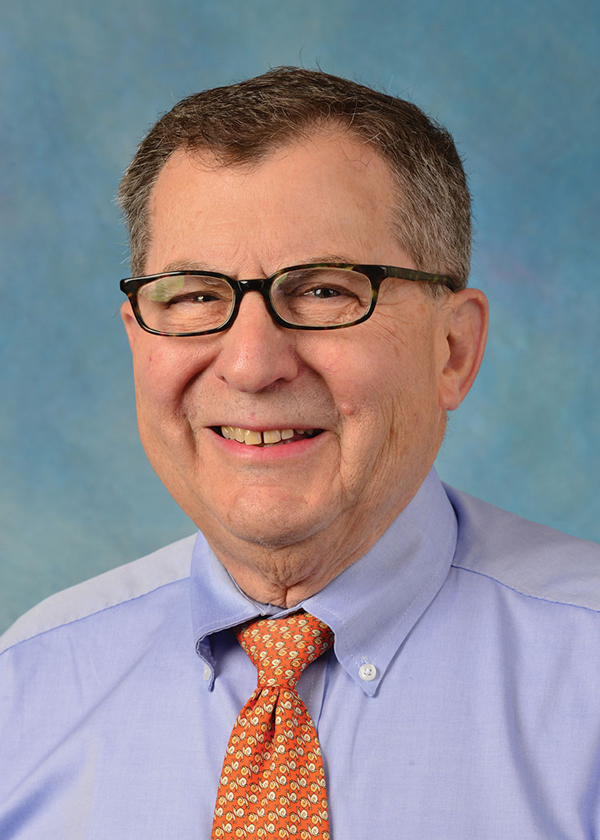Facing Cancer as an Older Adult
Special Factors You Should Consider When Making Treatment Decisions
by Hyman B. Muss, MD
Did you know that the average age for being diagnosed with cancer is 67, and that your risk of getting cancer rises dramatically as you age? These facts, coupled with the increasing longevity of the U.S. population, has made caring for older adults with cancer a major challenge.
Here are some statistics that may help you realize how far we have come. In the 1930s, when President Roosevelt signed the Social Security legislation, the average lifespan in the United States was about 60 years. Today’s current lifespan is almost 79 years, and a 65-year-old person in average health will now live an average of 20 more years, while a 75-year-old could expect to live 12 more years. So, when it comes to making treatment decisions, the real issue for older adult cancer survivors is life expectancy – or how long you are going to live – and this can vary greatly, even for people of the same age.
For older adults, living a few months longer at the expense of major toxicity may not be worth it.
Most of what we know about treating cancer, whether with surgery, radiation, chemotherapy, or new targeted treatments, comes from research in younger cancer survivors. Even now, older adults are woefully underrepresented in clinical trials. That said, the best treatment for a 50-year-old might not be such a desirable choice for someone who is age 75. Major efforts are being made to increase the numbers of older adults in clinical trials, and to develop trials specifically for older cancer survivors, but we are not there yet. This can make treatment decisions difficult for older adults who are diagnosed with cancer.
What should you do if you are diagnosed with cancer as an older adult?
First, you need to learn all about your diagnosis and treatment options. Always try to bring a friend or relative with you to your doctors’ appointments, and make sure all your questions are answered – and that you understand the answers.
You likely will be cared for by a team; and while the doctor may be the captain, nurses, pharmacists, social workers, and psychologists may also play crucial roles. As you take part in treatment discussions, make sure you know whether the goal of the treatment is to cure the cancer. Surprisingly, I find many people are unclear about this, and of course, it matters greatly.
Nonetheless, regardless of whether your cancer is curable, it is important that your care team is aware of your personal goals. For older adults, living a few months longer at the expense of major toxicity may not be worth it. In many studies, surveys show that the greatest fear of older adults with cancer is that treatment will result in loss of independence and they will become a burden on family and friends. Talk with your doctor about your concerns, and make sure your family is also on board with your wishes.
Ask your care team if they have experience caring for older adults with cancer and if you would benefit from a geriatric assessment, which would evaluate your level of physical function, memory, nutritional status, current medications, and available social support. This assessment can detect problems related to aging that cancer specialists frequently overlook but that can be addressed to make your cancer treatment more tolerable.
Once a person hears the word cancer, the emotional response can make all other illnesses appear unimportant. But this is often not the case. An early-stage colon or breast cancer is likely to be just a small annoyance compared to serious diabetes or heart disease. That’s why geriatric assessment can be so important in helping both you and your physician make the best treatment decisions. Information from this assessment can help accurately estimate life expectancy, leading to better treatment decisions and more realistic goals. This is key, as older adults with cancer who are otherwise in good health and have reasonable life expectancies generally tolerate modern cancer treatments as well as younger people do.
Once a person hears the word cancer, the emotional response can make all other illnesses appear unimportant. But this is often not the case. An early-stage colon or breast cancer is likely to be just a small annoyance compared to serious diabetes or heart disease.
Making treatment decisions is most difficult when an older individual is diagnosed with a cancer that isn’t curable but is causing side effects, or when that person has a potentially curable cancer in addition to a non-cancer illness that is causing major problems in function and quality of life. In these instances, medical care should be carefully tailored to the individual’s treatment goals, which may change as time goes on. Discussing your options with your family and your care team as a group is the best way to communicate goals and expectations.
Finally, if you are an older adult with cancer, ask about the role of palliative care specialists as part of your care team. Palliative care should not be confused with hospice or end-of-life care. Palliative care experts can help you cope with both cancer symptoms and treatment-related side effects, no matter what your goals for treatment are. Additionally, ask if you are eligible for a clinical trial and consider taking part if offered. Only by enrolling more older adults in clinical trials can we become better at treating older adults with cancer.

Dr. Hyman B. Muss is professor of medicine at the University of North Carolina at Chapel Hill School of Medicine and director of geriatric oncology at UNC’s Lineberger Comprehensive Cancer Center in Chapel Hill, NC.
This article was published in Coping® with Cancer magazine, September/October 2019.


